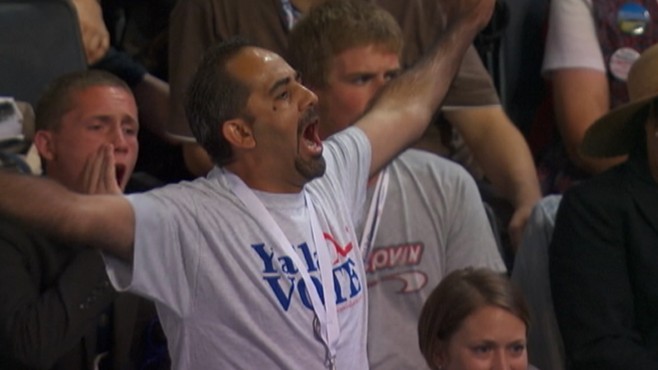Check out Central AZ's latest prayer newsletter here.
By Daniel Henderson
One of the greatest challenges in creating a strong prayer culture in a church is getting the senior pastor and the leadership staff to make prayer a priority in the life of the congregation. One church that has succeeded in doing this is WoodsEdge Community Church in The Woodlands, Texas.
Six years ago, Senior Pastor Jeff Wells would have described his ministry as a typical church that made plans, then asked God to bless them. Today prayer is fuels every aspect of the church. This change in direction came about because Wells and his team took some very specific steps to make prayer a priority.
• Honest evaluation.
Pastor Wells and his leadership team spent time at a retreat in candid discussion and prayer as they considered what their prayer commitment should be versus what it was in reality. They compared their behavior as leaders and a congregation with the biblical standard set by the early church in the book of Acts, which saw prayer as the main work of ministry. After this time of assessment, the WoodsEdge leadership team called the entire church to three days of prayer and fasting as a first step toward charting a new direction with prayer at the center.
• Accountable redirection.
As a result of their time in retreat, the leadership team committed to emphasizing prayer. They began by setting clear expectations for what their own examples in prayer should be among the flock. They also redefined the role of elders to comply with the principle of Acts 6:4 to give themselves continually to prayer and the ministry of the Word. Practically, this worked out in several ways. First, the pastors committed to spending an hour a day in personal prayer with the Lord. Then the weekly staff meeting changed from a business and communication meeting to a worship and intercession meeting. Now the pastors and staff take a full day of prayer offsite several times a year. The pastors also recruited personal intercessory teams to pray for them and their families.
• Shared experiences.
Wells and his team read and discussed key books on prayer; a couple of their favorites were Jim Cymbala’s Fresh Wind, Fresh Fire and Jack Deere’s Surprised by the Power of the Spirit. In each case they talked about how the points these books raised, both inspirational and instructional, could apply to their context. They even took a trip to the Brooklyn Tabernacle, which Cymbala leads, for that church’s well known Tuesday night prayer meeting. Other prayer experiences they shared as a church included prayerwalks and concerts of prayer. The leadership declared a prayer emphasis for 2009, encouraging the congregation to raise the bar of their personal prayer lives.
• Communication.
Wells let the congregation know about this new commitment to prayer via the pulpit and emails. He also began multiple communications monthly teaching on prayer and clarifying the leadership’s vision.
• Consistent, visible practice.
The pastoral staff and elders began leading the Wednesday night prayer service, which had consisted of prayer after the worship team rehearsal. Over time the service grew. Today the prayer gathering begins with an optional hour of solitude during which people can come to the altar, pray at their seats, join a prayer group, or receive prayer from a prayer partner. The heart of the service begins with over 30 minutes of worship. Wells then leads 45-minutes of prayer that focuses on personal needs, ministry concerns, and other issues that the Holy Spirit puts on his heart. Other leaders are available to pray with people and often will lead in prayer as they focus on specific issues.
• Sustaining systems.
Approximately three years into the prayer emphasis, the church hired a full-time pastor to coordinate the prayer ministry. Doing so ensured proper training, communication, and organization for the prayer service, various prayer emphases throughout the year, and other weekly prayer events. Some of the changes Wells believes the church has experienced directly because of prayer include people sensing God’s presence more strongly, the church having more impact on the community and internationally, and some members experiencing physical healing.
Today the church’s website declares that the most important service of the week is the midweek, church-wide prayer experience, and a foundational statement in the church’s vision statement says, “We long to become a church that is a great house of prayer.”
DANIEL HENDERSON is an author, president of Strategic Renewal (www.strategicrenewal.com), a professor at Liberty University, Pastor of Prayer and Renewal at Thomas Road Baptist Church (Lynchburg, Virginia), and a facilitator who travels to more than 35 venues a year, equipping pastors and churches in prayer. His most recent book, Defying Gravity - How to Survive the Storms of Pastoral Ministry (Moody) was written to encourage pastors in their spiritual leadership journey, which includes a vital focus on prayer.
